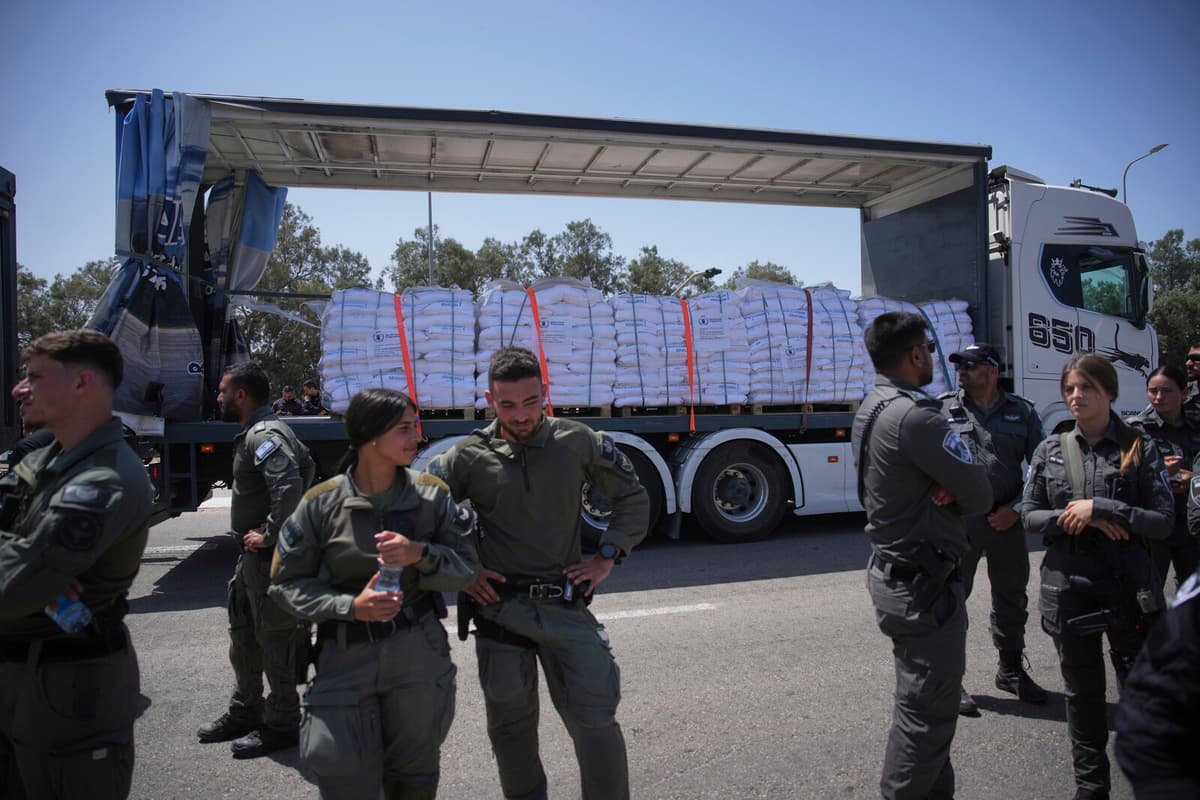According to Stéphane Dujarric, spokesperson for the UN Secretary-General António Guterres, the emergency aid cannot leave the border area as the road that Israel's military has given them permission to drive on is too uncertain. He states, however, that talks are underway to find an alternative.
An anonymous UN official states that some trucks have been able to begin their journey to warehouses in Gaza, but there is no confirmation that they have arrived.
According to Cogat, the unit within Israel's Defense Ministry that handles civilian matters in Gaza, 100 trucks from the UN and the international community have been allowed to enter via the southern Kerem Shalom crossing between Israel and Gaza on Wednesday.
Unbearable situation
The humanitarian situation in Gaza is becoming increasingly acute. A number of trucks have entered Gaza since Israel announced that it would allow a "minimal" amount of emergency aid to the civilian population, after an 11-week blockade.
53-year-old Umm Talal al-Masri, who lives in the northern parts of Gaza, describes the situation as unbearable.
No one is giving us anything.
Everyone is waiting for help, but we have not gotten anything.
Pascale Coissard, Médecins Sans Frontières' emergency coordinator in Khan Yunis, calls the extremely limited amount of emergency aid a "smokescreen to pretend that the blockade is over".
Israel's decision to allow a ridiculously insufficient amount of aid to Gaza after months of a strict blockade signals the intention to avoid accusations of starving people in Gaza, he says.
Violent night
On Wednesday, it was also reported that extremists with ties to settler groups on the West Bank had made their way to Kerem Shalom. There, they are trying to physically stop aid, reports, among others, the newspaper Haaretz. It is said to involve activists from the group Tsav 9, which the US State Department designates as a "violent extremist group".
The reports follow a violent night. At least 86 people, including several women and a one-week-old baby, have been killed in Israeli airstrikes on various parts of Gaza, according to hospital sources and the civil defense in the Hamas-controlled area.
The Gaza war broke out after the terrorist-listed Hamas, which rules in Gaza, attacked Israel in 2023. On Sunday, Israel launched a new "comprehensive" offensive in Gaza.






